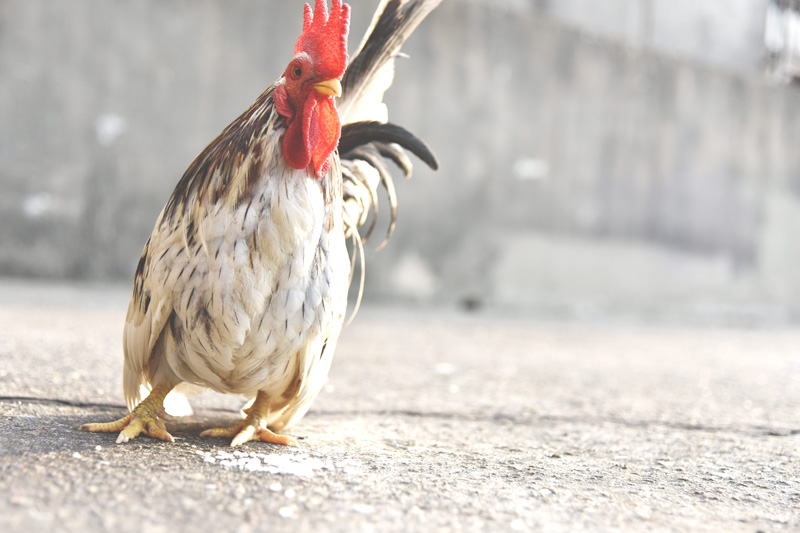Sorting through the myths and misconceptions about Chickenpox and Shingles
Many people ask questions about Chickenpox and Shingles. Parents especially want to know how to best protect their children from infection or help them if they do get infected. Most of us have lived through the Chickenpox, yet many of us don’t know much about it. Here are some frequently asked questions answered.
Is Chickenpox and Shingles the same thing?
Yes. The same virus Varicella Zoster VZV causes them, which is part of the herpes family. Herpes is Latin for ‘spreading skin eruption’. Chickenpox is called Varicella Zoster and Shingles is called Herpes Zoster. When VZV initially infects a person it is called Chickenpox, which sleeps in our nerves for life and can be awoken to cause Shingles. We can just hope it never wakes up!
Stress, lowered immunity and increasing age are some of the stimulants.
Why are they called Chickenpox and Shingles?
You can’t get chickenpox from chickens. The pox marks just look like chickpeas.
Shingles is Latin for ‘split like a roof shingle’ and zoster means ‘belt’, which describes the distribution of the eruptions on the body.
How contagious is Chickenpox?
Extremely. Chickenpox has a 90% chance of spreading to other previously unaffected people between two days prior to seeing a rash till the point all lesions have fully crusted over and no liquid drops can be contacted, which usually takes up to two weeks. It affects mostly 5-9 year olds between January and May when kids get outside more and play.
How contagious is Shingles?
Not so bad. Shingles is less contagious than chickenpox, but is still readily contracted from physical contact with a person with active blisters. Shingles cannot be spread; instead a person with shingles can cause Chickenpox in a previously uninfected person.
What if my child gets Chickenpox when I never have and I am not vaccinated?
You as an adult are susceptible to getting a more severe form of the infection when exposed to the virus. Only 2% of all chicken pox is in adults over 20 years of age, but the majority of complications including pneumonia occur in adults. The infection is treatable.
Can I get Shingles if I’ve never had the Chickenpox?
No. You must have contracted Varicella zoster and had it manifest as Chickenpox before it becomes shingles. Chickenpox always comes first.
Does the Chickenpox vaccine protect me fully?
The vaccine confers 88-98% protection to infection indicated for healthy children greater than one year of age who have not previously been infected. The vaccine is given on two separate occasions for maximal efficacy.
It is given after the age of 1 because as a live virus this is when it is most effective. There is no mercury, aluminum nor egg in this vaccine. There is sugar, saline, gelatin, MSG, Potassium, Human diploid cells, EDTA, Neomycin, Cow fetus serum.
You can get a mild pox reaction from the vaccine. This occurs less than 5% of the time. The vaccine is 100% effective at preventing more serious chickenpox complications.
Does the Chickenpox vaccine give you lifelong immunity?
No. The effect of the vaccine wanes over time and it may also fail to protect some people. It looks like full protection lasts up to 20 years with two doses and about 83% protection for 8 years after one dose.
There can be a false sense of security especially for adults who are at higher risk of serious consequences of contracting chickenpox later in life. This is in contrast to more reliable lifelong immunity if you contracted Chickenpox as a child.
Can a vaccinated person pass on Chickenpox to someone else?
Rarely. There have been cases, but the vaccine pox is not normally contagious.
It is possible to lessen the severity of an infection by getting the vaccine if you believe you’ve been around someone who has Chickenpox.
I’m told I must vaccinate before having a baby?
Chickenpox during pregnancy can infect the growing fetus and when the baby is born they are susceptible to manifesting shingles, although the rates are low (as low as 0.4% and as high as 2% based on trimester of infection). You cannot vaccinate while pregnant, however if you contract Chickenpox contact a medical professional as treatment is warranted.
What to know about the Shingles Vaccine?
This vaccine is given to prevent Shingles in healthy adults over the age of 50 who have or have not been exposed to Shingles one year after an outbreak resolves. It decreases risk of Shingles by 50% and lasts four years. 50% seems like a lot. But in other words, your chance of manifesting shingles is normally 3% and with the vaccine it is 1.5%. It is less effective in adults over 70 years of age.
The Shingles vaccine is identical to the chickenpox vaccine, except for a slightly higher solution amount.
Can you treat Chickenpox?
Yes, but usually not necessary. For otherwise healthy children symptomatic treatment is best because of the self-limiting nature of the infection.
For children who have health conditions that compromise their immune systems antiviral medication may be necessary. The same may be true for healthy adults because of the greater severity of disease and potential for greater complications like pneumonia.
Herbal treatments to boost immune responses and antiviral natural therapies can support the healing process and lessen the potential for complications.
Can you treat Shingles?
Yes, but you must hurry! It has to be treated within three days of the first signs of the infection preferably on the first day. If not treated early the infection is much more difficult to change with antiviral treatments. The symptoms can be controlled with medicine because they can last for much longer than active lesions are present. Symptoms can be debilitating.
Although it’s not like you’re stuck with the pain. There are many medications, herbal treatments, vitamin therapies and analgesic modalities that can help relieve the pain of shingles.
Can you get Chickenpox more than once?
Possibly. Contracting Chickenpox twice is extremely rare, but is possible.
Can you get Shingles more than once?
Yes. Stress and a weakened immune system both are factors in contracting Shingles repeatedly.
Is there anything I need to do if I’ve never had Chickenpox or been vaccinated and I want to get pregnant?
The rates of infection are very low and are not different in pregnancy. You can vaccinate prior to pregnancy. If you have concerns about the vaccine, which many people do, you can treat Chickenpox during pregnancy if it does occur.
What happens if I get Chickenpox when I’m pregnant?
Timing matters here. If in the first or second trimester there is a less than 2 percent chance of serious harm coming to the baby including physical malformations, poor development and miscarriage.
The second riskiest time is between one-week prior to delivery till a few days afterwards. At this point the baby is not sufficiently protected by antibodies that mother’s immune system usually passes to baby once she is infected. Even in these circumstances, treatment is available to minimize the effect of infection.
What happens if I get Shingles when I’m pregnant?
If I’m pregnant should I stay away from people with Chickenpox or Shingles?
If you are not immune to Chickenpox coming into contact with a person who has EITHER Chickenpox or Shingles can cause you to contract Chicken Pox.
Unlike Chickenpox, Shingles does not pose a risk to a developing baby during pregnancy.
What if I’m breastfeeding?
Continue breastfeeding. It’s quite likely you have already passed the virus to your baby. Now you can continue to pass helpful antibodies to baby through breast milk too.
Can you test to see if you are immune?
Yes. You can test if you produce the antibody indicating immunity to the virus. Many people don’t remember ever having Chickenpox. For those people you can test varicella titres in your blood to know.
For advice on prevention and the many treatments available for either illness consult with a qualified healthcare practitioner.
Dr. Bobby Parmar ND






